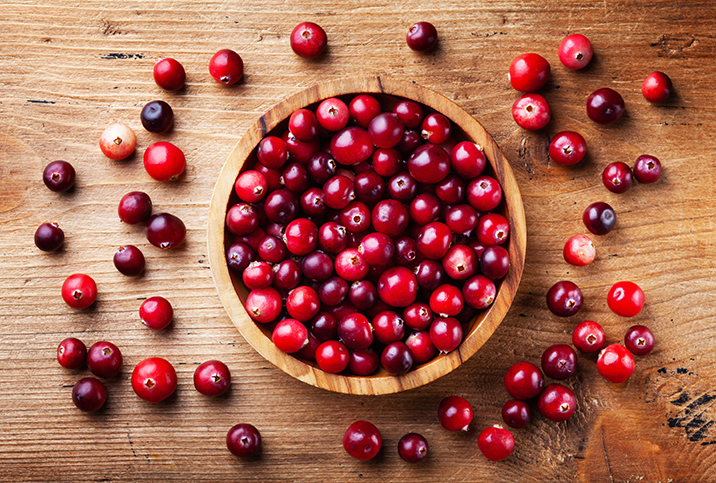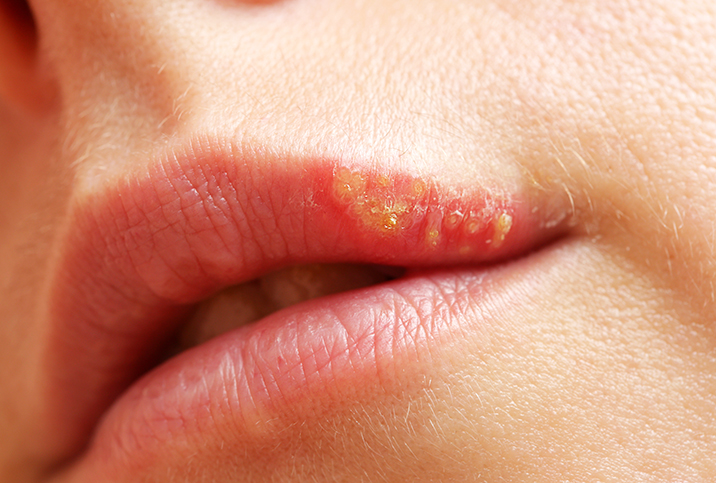What's the Best Diet for Managing Herpes?

Although there's no known cure for either variation of the herpes virus, there are ways to maintain outbreaks of both HSV-1 (cold sores) and HSV-2 (genital sores). For the majority of people who've contracted either strain, medications can help reduce the severity of symptoms and frequency of the outbreaks, limiting sores around the genitals, rectum or mouth and flu-like symptoms such as fever, body aches or swollen glands. But implementing lifestyle changes such as lowering your stress level and, notably, monitoring your diet can bolster your immune system and help many people affected by the virus manage flare-ups over the long haul, said Texas-based gynecologist Angela Akonye, M.D.
Can specific foods help prevent herpes outbreaks?
Well, it works in one of two ways. First, eating foods packed with the amino acid lysine works to effectively manage herpes similar to the way medications can. Lysine is important in the formation of collagen, a structural protein found in the body's connective tissue that helps speed along the wound-healing process. As a result, outbreaks around the mouth or genitals are likely to heal faster when the body is regularly supplied with it.
Secondly, lysine blocks the activity of arginine—an amino acid not naturally produced by the body; rather, arginine, like lysine, is similarly consumed through food. For those living with herpes, it's best to limit how much arginine you ingest since studies as far back as the 1980s indicate that too much arginine can trigger outbreaks and increase the rate at which the virus multiplies in the body, intensifying the symptoms.
While there isn't much scientific research on how diet or particular foods impact herpes, people with the virus have reported improvements when eating and avoiding certain foods.
Foods high in lysine to consume:
- Most poultry (avoid turkey) and red meat
- Dairy products such as yogurt, cheese, butter and milk
- Seafood such as oysters, shrimp and snails
- Fruits such as pears, mangoes and dried apricots
- Vegetables such as potatoes, bell peppers and beets
- Other foods such as eggs, beans and tofu
Foods high in arginine to avoid:
- Grain products such as cereal and oatmeal
- Fruit juice products such as orange juice
- Certain pastries such as muffins
- Nuts and nut products such as peanuts
Other foods to avoid when you have herpes
A few other ways to protect your immune system and minimize herpes outbreaks include limiting your intake of carbohydrates, sugar and coffee. Carbs such as white bread, white pasta and sodas high in fructose corn syrup can suppress your body's immunity; sugar works against your body's immune system by suppressing white blood cells; and too much caffeine inhibits your immune system by decreasing its ability to fight infections and remove damaged cells.
Despite the stigma surrounding living with herpes, Akonye encourages people to speak up, get tested and be more open about their health. "Contracting herpes is not the end of the world," she said. Also, to aid in protecting themselves and future partners, Akonye educates her patients about medication and mindful lifestyle practices that can suppress outbreaks.
Ultimately, regardless of who you are, how old, and how you contracted herpes, no one should feel ashamed to seek help. Maintaining your health is necessary when trying to manage herpes; at the same time, herpes reacts differently in different people's bodies, so it's important to familiarize yourself with which practices consistently work for you and which don't.
On top of a mindful diet, practices that seem to help keep outbreaks at bay include getting plenty of sleep and regular exercise, and minimal use of alcohol, cigarettes and recreational drugs. It could also be helpful to consult professionals who can help guide your diet and lifestyle practices to be as effective toward making living with herpes as manageable as possible.

















